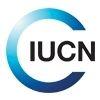|
|
Due to maintenance work, our HR Management System might be inaccessible on
Saturday, 20 April 2024, from 6:00 to 10:00 CEST (UTC+02:00)

Conservation Scientist
|
For the first year of employment it is anticipated that 100% of time will be spent on Science and Knowledge Unit projects; however, from the second year onwards, up to 15% of the Conservation Scientist’s time may be supported through engagement in IUCN ORMACC and SUR projects. As the Conservation Scientist will be based in San Jose at IUCN’s ORMACC office, and in line with the above-mentioned related responsibilities, it is anticipated that the Conservation Scientist will work with ORMACC and SUR data and information mobilization, written outputs for publication, and data analysis for the preparation of presentations in fora and conferences. The Conservation Scientist will receive support and will coordinate with the specialized staff from ORMACC and SUR on key IUCN themes such as Protected Areas; World Heritage; Green List; Landscape restoration; Climate change and Ecosystem-based adaptation; Coastal and Marine management; Governance and Rights.)
11. SPECIFIC DUTIES:
•Support the implementation of Science & Knowledge projects, in particular through the development of the metrics and methods for science-based targets for biodiversity, including coordination, meeting and event organization and preparation, GIS analyses, publications, and liaising with the broader network of stakeholders and contributing to novel analysis; including for ORMACC/SUR related positioning after the first year. Anticipated time: 40%
•Undertake a substantial role in supporting development of the IUCN flagship report, especially in supporting the coordination, data compilation, analysis, visualization, and publications aspects of the report. Anticipated time: 30%.
•Support the application of the data and knowledge products mobilised against IUCN standards (including but not limited to the IUCN Red List of Threatened Species and Red List of Ecosystems, the World Database of Key Biodiversity Areas, and the World Database of Protected Areas) as appropriate in all projects, including contributing to novel analyses (e.g., of agriculture as a driver of extinction risk). Anticipated time: 10%.
•Support dissemination of results, with particular attention to integrating data from Mesoamerica, South America, and the Caribbean through (a) presentations in scientific and policy-related conferences and other fora and (b) publication into the peer reviewed literature, either into independent scientific journals or as IUCN publications. Anticipated time: 10%.
•Fulfil project management responsibilities for substantive tracking and reporting on the Science & Knowledge Unit project portfolio, and liaison with the GPOU on budget management aspects. Anticipated time: 10%.
•Engagement with other ORMACC/SUR projects and key institutional i. Anticipated time: up to 15% after the first year.
•Perform other duties as may be assigned from time to time.
Please Note: The above TORs contain the main responsibilities and duties of this position. However in an ever evolving organisation such as IUCN staff members are expected to show flexibility in their approach to work and be willing to undertake other tasks that are reasonably allocated to them but which are not part of their regular TORs. Where any task becomes a regular part of staff member’s responsibilities, the TORs should be changed in consultation between the manager, the staff member and the HR Unit. Any one of the three may initiate the consultation.
|
• MA in conservation-related scientific field required • Five years of experience in conservation and scientific/applied research -related activities required • Excellent people skills, organization, and attention to detail required • Experience in convening scientific and technical workshops, meetings, or conferences very useful • Excellent knowledge of the conservation-related scientific literature required • Experience writing scientific and other publications very useful • Analytical skills including database development, GIS, programming required • Fluency in English and Spanish essential, fluency in French useful • Willingness to undertake some travel associated with the position required • Experience of field conservation in the Global South useful • Passion for conservation essential |
Applicants are requested to apply online through the HR Management System, by opening the vacancy announcement and pressing the "Apply" button.
Applicants will be asked to create an account and submit their profile information. Applications will not be accepted after the closing date. The vacancy closes at midnight, Swiss time (GMT+1 / GMT+2 during Daylight Saving Time, DST). Please note that only selected applicants will be personally contacted for interviews.
Other job opportunities are published in the IUCN website: https://www.iucn.org/involved/jobs/
About IUCN
IUCN is a membership Union uniquely composed of both government and civil society organisations. It provides public, private and non-governmental organisations with the knowledge and tools that enable human progress, economic development and nature conservation to take place together.
Created in 1948, IUCN is now the world’s largest and most diverse environmental network, harnessing the knowledge, resources and reach of more than 1,400 Member organisations and around 16,000 experts. It is a leading provider of conservation data, assessments and analysis. Its broad membership enables IUCN to fill the role of incubator and trusted repository of best practices, tools and international standards.
IUCN provides a neutral space in which diverse stakeholders including governments, NGOs, scientists, businesses, local communities, indigenous peoples organisations and others can work together to forge and implement solutions to environmental challenges and achieve sustainable development.
Working with many partners and supporters, IUCN implements a large and diverse portfolio of conservation projects worldwide. Combining the latest science with the traditional knowledge of local communities, these projects work to reverse habitat loss, restore ecosystems and improve people’s well-being.
www.iucn.org
https://twitter.com/IUCN
